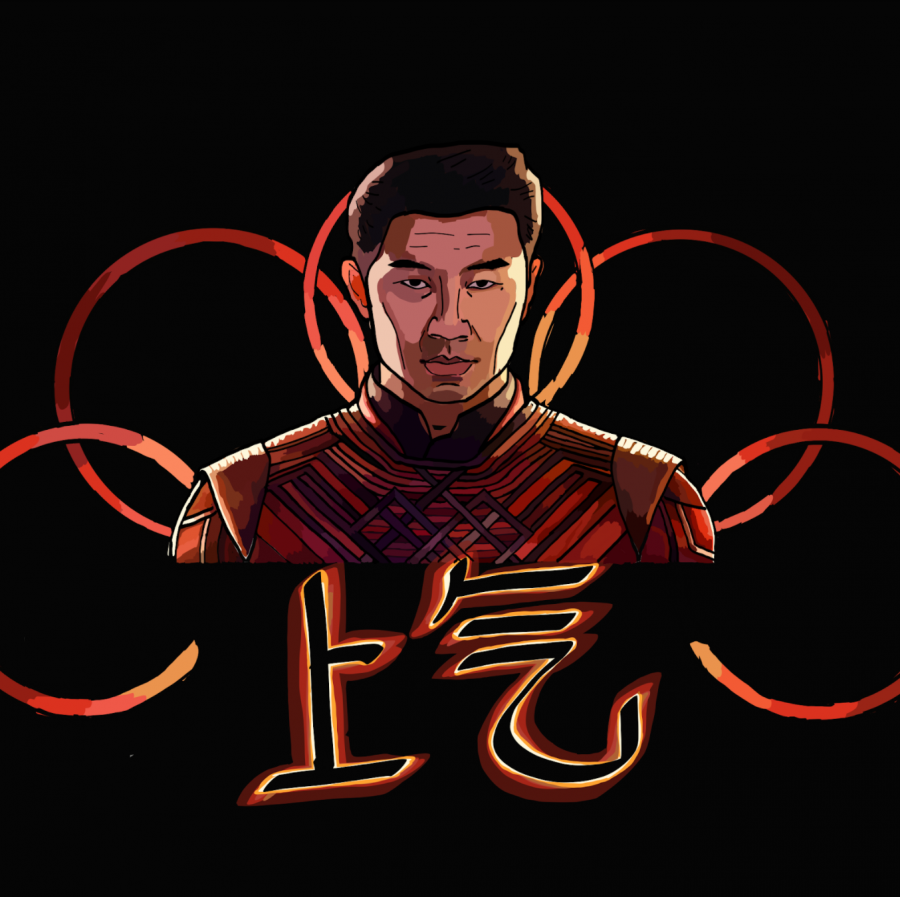Shang-Chi Makes History as First Asian-Led Marvel Film
October 3, 2021
Rating: 4.5/5 Falcons
At first glance, Shang-Chi is your average comic book superhero. He works as a valet driver and goes by the alternate name, Shaun, to hide from his enemies. The film begins when Shang-Chi is forced out of his ordinary life, when he is hunted down by his father in an attempt to bring him home. His father had trained him to be an assassin as a child, and Shang-Chi ran away from the pressure of taking on such a nefarious life. Instead, he adopts a new identity as a normal high-schooler in a big city, attempting to start a clean slate. Shang- Chi’s cinematography is as stunning as a Marvel movie has ever been––thousands of petals and bamboo leaves fly around spectacularly in the air when Shang-Chi’s parents meet.
The film marks the first Marvel movie to feature a predominantly Asian cast. Asian characters are often sidelined in Hollywood—look no further than Marvel’s own roster of Asian characters prior to Shang-Chi: Mantis from Guardians of the Galaxy and Wong from Doctor Strange—both sidekicks to white characters, added for comedic effect and advancing their peers’ storylines. In contrast, Shang-Chi attempts to bring agency to its Asian characters as well as avoid stereotypes. In an interview with The New York Times, screenwriter David Callaham touched on how he wanted comedy in the film to come from Asian characters, rather than be targeted at them: an attempt to break the stereotype that “Asian Americans can’t be funny.” Callaham also talked about how he wanted Shang-Chi to be portrayed as “romantically viable, as an Asian man.” It isn’t often that Asian men are written without being emasculated, and Shang-Chi joins Crazy Rich Asians in the ranks of recent films that achieve this.
The positive representation of Asian characters is even more rewarding knowing the origins of the story. In the original 1970s Marvel comic, Shang-Chi’s father was Fu Manchu, a villain whose character originated from the Yellow Peril wave in the early 1900s, revolving around the racist concept that Asian people posed a threat to Western society. In the newest rendition of Shang-Chi, the role of his father is replaced with Xu Wenwu, who remains a ruthless colonizer, but also values his family. Wenwu is the master of the “Ten Rings,” a legendary artifact that gives its possessor a surplus of physical power and immortality. Wenwu abuses this power to seize control over neighboring kingdoms. However, he sets thousands of years of pursuing power aside when he falls in love with Ying-Li, Shang-Chi’s deceased mother. It is remarkable seeing Asian characters written with such complexity, especially as Wenwu isn’t even the protagonist of the story.
It is heartening to finally see East Asian representation on such a massive scale on the big screen, hopefully this is just the beginning. We are already in the midst of a new wave of representation, with the upcoming Marvel release The Eternals featuring an Asian director, Chloe Zhao, and an Asian lead, Gemma Chan.
This piece also appears in our September 2021 print edition.









